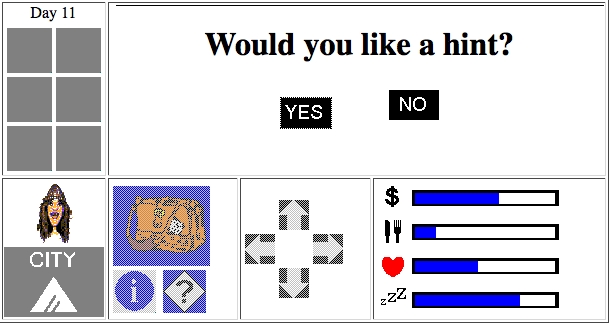Back when I did my PhD, I was fortunate to be in Don Norman’s group when they were developing some of the primary design principles about designing for how people really think (“cognitive engineering”). It focused on designing for the way people work (my twist was designing for how people learn). I recently ranted about animated gifs, and I’ve got a similar catalyst here.
As background, people don’t do many things exactly the same way. We’re really bad at rote stuff, and instead are widely creative. If you want information from someone, it might come in many different ways: if you asked how to get somewhere, you might get a map, a set of instructions, a series of landmarks, directions to MapQuest or GoogleMaps, etc.
When you’re designing a web site (or application) that asks for information, you can do several things. The right thing to do is to have the backend processing be smart. Put the burden on the system to tolerate user preferences. For instance, I like that several different address book applications I’ve used accept phone numbers in several different ways: (925) 200-0881, 925.200.0881, 925-200-0881, etc, and remap it to their internal format. You put it in in a different way, and it comes back in their canonical format. That *might* drive you mad, but if you vary to widely, it’ll accept your variety just as you want. Same with dates in many applications. Great user experience.
Alternatively, if you want to put the burden on the human, provide guidance. Next to the field, put either instructions (“9 digit starting with area code, no separators”), or better yet, an example (“925-200-0881”) next to the field. This puts the burden on the interface designer to communicate, and the user to adapt so is slightly less elegant, but may be more likely to lead to valid data. However, it’s at least claer.
The worst case is not to tell the user (presumably not to spoil an elegant interface, cough cough), but to provide feedback if they get it wrong. The advice above comes after you don’t follow their preferred format. This is not proactive, but at least it’s helpful, at least if you think that there’s only a small chance they’ll choose any way but the way you expect.
So, of course, I just ran into a bad example where I was entering email addresses. They had to be separated in the one field, so I could use: spaces, commas, or put them on separate lines. I tried the latter, and was told it wasn’t in the right format, without telling me what the right format is! Bad designer, no twinkie!
I’m sorry, but these things were known 15 years ago when I was teaching interface design. And learning design typically includes some interface design. I mean, you want the learners to be acting, so you’ve got to design interactions, so you’re about usability design as well. I do believe learning designers need an understanding of usability, even if development really should have all the right skill sets for the necessary jobs: that is a writer for prose, a graphic designer for look and feel, usability expert for interactions, instructional designer for the learning, audio, video, etc. In the real world, however, you’re likely going to have to do some, or at least evaluate the toolset capabilities, so do get some exposure to basic usability. A great start is Don Norman’s Design of Everyday Things. Easy and fascinating read, and you’ll never look at the world in the same way again.
However you do it, be sensitive to aesthetics and usability. You’ll be a better designer, even if you will be a wee bit less tolerant of bad design. But I think that’s a good thing, or we’ll never move forward!



